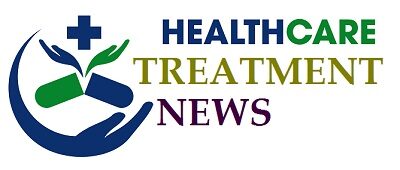
7 tips for a healthy diet in the face of Coronavirus
As countries battle the COVID-19 pandemic, more people around the world are being forced to stay at home. How this new coronavirus has transformed the way we live, work and play seems unreal. We asked the nutrition experts of the World Food Program (WFP) for advice, both on how to strengthen ourselves but also how to make this moment a chance to improve our diet.
-
Hydrate again and again
The body is made up of about 75% water. The usual recommendation is to drink eight glasses of water a day. In times of confinement, we are generally less active than usual, which explains why we felt the need to drink less. So, it is important to find a way to remind ourselves regularly that we need to hydrate our body.
To add more flavor and nutrients to your drink, simply add slices of cucumber, lemon, or orange to your glass of water. Avoid drinks such as sodas because of their high sugar content.
-
Starchy foods
These foods are essential for energy, essential for thinking, working and fighting disease. These are staple foods like rice, pasta, bread, and roots. In particular, favor whole-grain bread and mixed-grain rice, which release energy more slowly, nourish you longer and help you maintain your healthy weight.
-
Proteins
They promote physical growth, especially in children. It is often recommended to consume it daily, but in small quantities.
Protein includes meat, fish, eggs, milk, and other dairy products like cheese and yogurt. It is important to buy UHT milk and dairy products with a long shelf life, as well as to freeze meat and fish.
Depending on their expiration date, eggs can be stored in the refrigerator for up to three weeks from the date of purchase. They are a good source of low fat protein, as well as vitamins.
Limit your intake of canned meat, as it is usually too high in salt and fat. In contrast, canned tuna is a healthier alternative. Plant proteins such as lentils and beans have a long shelf life and are rich in vitamins and minerals. Rinse dry foods thoroughly before cooking them.
-
Fruits and vegetables
They ensure the proper functioning of the body, help protect it from diseases and fight against them. All foods contain vitamins and minerals, but colorful fruits and vegetables are usually particularly rich in vitamins and antioxidants.
Orange and yellow fruits and vegetables: carrots, pumpkins, sweet corn, sweet potatoes, yellow peppers, yellow tomatoes, yellow apples, apricots, oranges, grapefruits, peaches, mangoes, papayas, pears, pineapples.
Red fruits and vegetables: tomatoes, radishes, red cabbage, beets, red grapes, strawberries, watermelons, cherries, raspberries, pomegranates, cranberries, red apples.
Canned fruits and vegetables: whether canned, frozen, dried or fermented / pickled, they are a great alternative when fresh fruits and vegetables are hard to find due to the season or if they cannot be purchased daily.
-
Fortified foods and food supplements
Depending on your situation, fortified foods and dietary supplements may be needed and combined with meals to provide important nutrients, especially in a food insecure setting, when the diet is of poor quality or in limited quantity.
-
Exercise
Don’t forget to get some physical activity! The World Health Organization recommends 30 minutes of physical activity per day for adults, and one hour per day for children. If allowed, go for a short walk or run, while keeping a safe distance from others. If you can’t leave the house, find an exercise video online, dance to music, do yoga, or walk up and down the stairs.
-
Foods to Avoid
Foods high in fat, sugar and salt (heavily processed foods) are not considered part of a healthy diet. It is particularly important at this time to avoid them because they do not provide any nutritional benefit.


